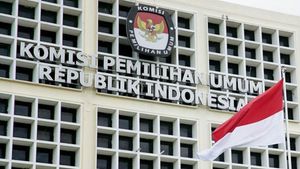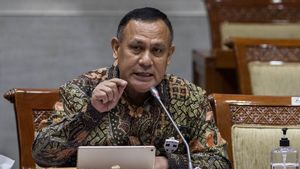The Bali Health Office (Dinkes) is coordinating to prevent the spread of the monkeypox virus or known as Monkeypox and the bisexual community on the Island of the Gods, considering that the average number of cases in Indonesia occurs in people with HIV and bisexual orientation.
"Socialization and communication have been carried out by the health office team, we have coordinated with the community (bisexual orientation owner, ed) if anyone has symptoms to report to the nearest health facility," said Head of the Bali Health Office I Nyoman Gede Anom as reported by ANTARA, Monday, November 13.
In his statement, Anom said that there have been no reports of cases of monkeypox in Bali, but reflecting on cases that occurred outside Bali, his party is trying to anticipate groups of people who have the potential to be infected.
Currently, the number of people with bisexual orientations of male sex men (NGOs) in Bali is 4,868 people based on data from the Bali Health Office as of October 2023, of which 240 people are HIV positive.
"All units of health care facilities in Bali starting from the puskesmas, hospitals, both the government and the private sector have received socialization of the handling of monkeypox so that they are ready to handle it if there are cases of monkeypox," he said.
Anom explained, in endemic countries, the transmission of this virus to humans can occur through animal bites or scratches, processing wild animal meat, direct contact with body fluids or lesions, or indirect contact through contaminated objects.
Monkeypox is an emerging zoonosis caused by the MPXV virus, first discovered in 1958 in Denmark when there were two cases such as smallpox in a colony of apes that were kept for research.
For transmission to humans occurs through direct contact with infected animals or humans, or through objects contaminated with the virus.
The virus enters the body through the skin that is injured or open even though it is not visible, the respiratory tract, or mucus membranes (eyes, nose, or mouth).
"The incubation period is quite long from being infected until symptoms appear, it can be 3-21 days, the most often 6-10 days," said Anom.
For prevention in the general public, Anom asked to avoid direct contact or provocations of monkeypox transmission animals suspected of being infected such aschanicals, marsupials, non-human primates either dead or alive.
SEE ALSO:
In addition, avoid consuming or handling meat hunted from wild animals (bush meal), get used to eating properly cooked meat, and use complete PPE when dealing with infected animals.
"The traveler who just returned from the infected area should immediately check himself if he has symptoms and inform his travel history. New vaccinations are carried out in Jakarta in a special population," said Anom.
Previously in Jakarta, Saturday (11/11) Minister of Health Budi Gunadi Sadikin said that so far there have been 42 cases of monkeypox in the country, where the infected are spread across DKI Jakarta, Banten, and West Java.
The English, Chinese, Japanese, Arabic, and French versions are automatically generated by the AI. So there may still be inaccuracies in translating, please always see Indonesian as our main language. (system supported by DigitalSiber.id)



















